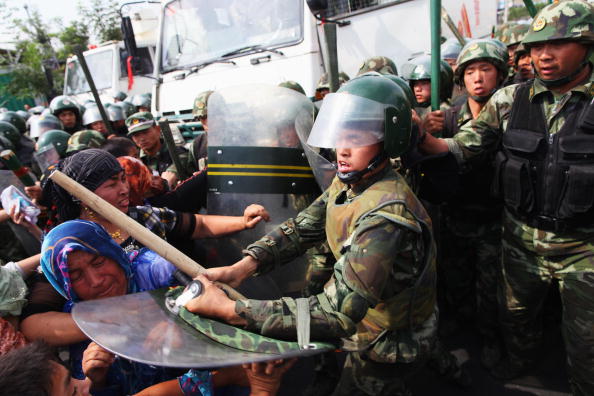China bans Muslims from fasting during Ramadan, say Uighur community
Shops and restaurants are being ordered to stay open during daylight hours - or risk being shut down

China has, once again, banned Ramadan in parts of the far western Xinjiang district for Muslim party members, civil servants, students and teachers.
Muslims throughout the district – which is known to have a minority population of Uighurs – have been told not to fast during the Holy Month.
The Uighur leader, Dilxat Raxit, sees the move as China’s attempt to control their Islamic faith and warned that the restrictions would force the Uighur people to resist the rule of the Chinese government even more.
He added: “The faith of the Uighurs has been highly politicised and the increase in controls could cause sharp resistance.”
In recent years, Chinese authorities have blamed separatist Uighurs for a string of terrorist attacks on civilian crowds and government institutions, but the group has consistently denied involvement.

Activists have long-accused Beijing of exaggerating the threat as an excuse to impose restrictions.
Mr Raxit told Radio Free Asia: “They [the Chinese government] are extracting guarantees from parents, promising that their children won't fast on Ramadan.”
According to the government’s website, halal restaurants near the Kazakh border are being encouraged by food safety officials to stay open during daylight hours in Ramadan.
Shops and restaurants owned by Muslins have also been ordered to continue selling cigarettes and alcohol over the course of the month – or be shut down altogether.
Beijing is continuing to crack-down against ‘religious extremism’ although human rights groups call it ‘religious repression’, adding that authorities want to prevent Muslims from ‘instilling religion’ into public bodies.
The ruling party says religion and education should be kept separate and students should not be subject to ‘religious influences’, although this rule is rarely enforced for children of Han Chinese, who – if they have a religion – are mostly Buddhist, Daoist or Christian.
Join our commenting forum
Join thought-provoking conversations, follow other Independent readers and see their replies
Comments
Bookmark popover
Removed from bookmarks